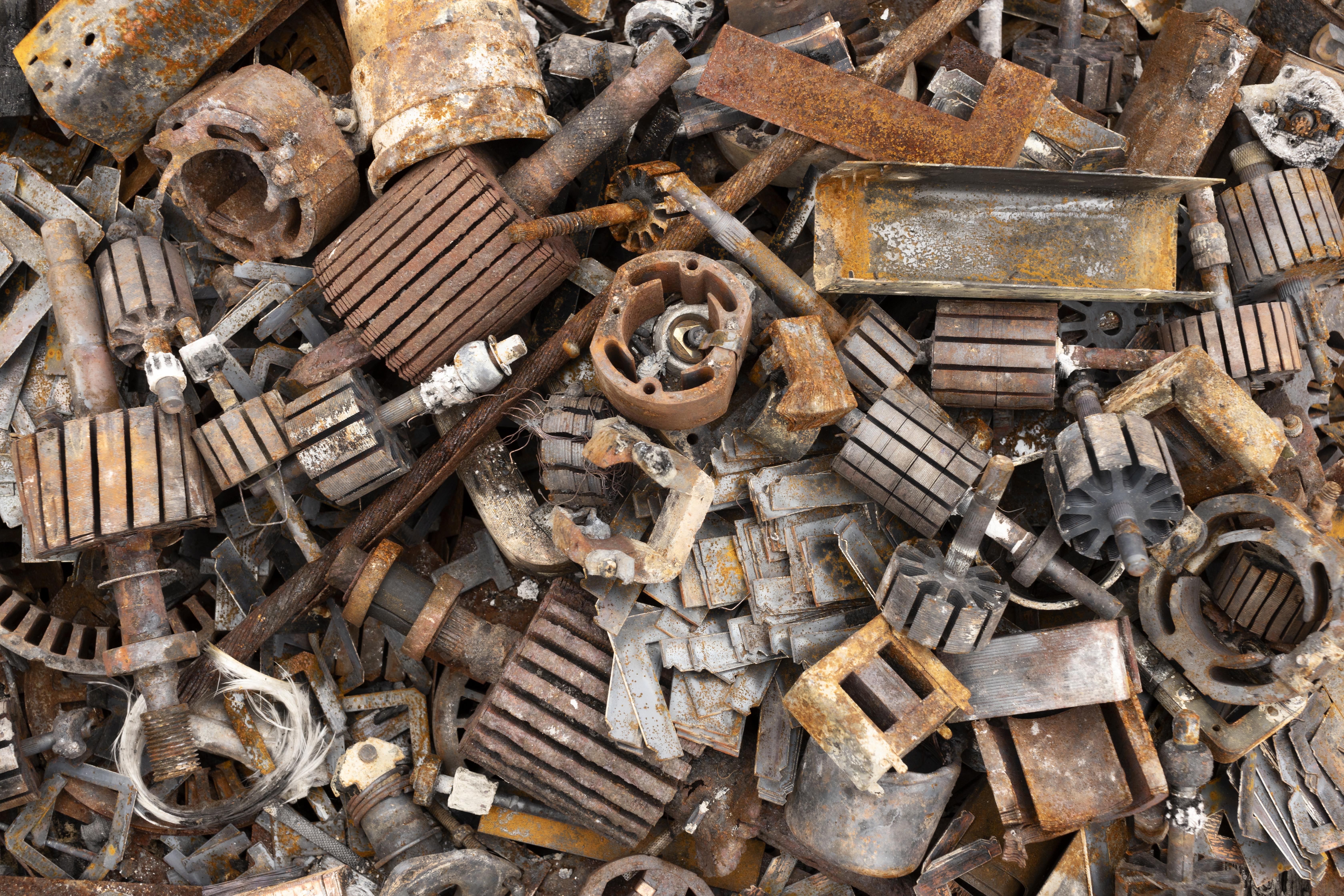Industrial Waste Disposal Laws in India: What You Need to Know

As industries grow across India, so does the volume of waste they generate. From chemicals to plastic, untreated industrial waste can severely harm our air, water, and soil. This is why India has strict laws around industrial waste disposal. Whether you run a factory, a packaging unit, or a processing plant, understanding these laws isn’t just about compliance—it’s about running a responsible business.
What Is Industrial Waste? An Overview for Businesses
Industrial waste includes materials discarded during manufacturing or industrial operations. It can be hazardous, like chemical by-products, or non-hazardous, like packaging scraps and rejected materials. In India, the improper disposal of industrial waste is one of the top contributors to environmental degradation. Recognizing and categorizing your waste correctly is the first step in aligning with industrial waste disposal laws.
Who Regulates Industrial Waste Disposal in India?
In India, the Central Pollution Control Board (CPCB) and the State Pollution Control Boards (SPCBs) are responsible for enforcing waste management regulations. They issue clearances, monitor compliance, and penalize violations. Key frameworks include the Hazardous Waste Management Rules, Plastic Waste Management Rules, and Solid Waste Management Rules. Staying updated on these policies helps avoid penalties and builds public trust in your business.
Key Laws Governing Industrial Waste Disposal in India
-
Hazardous and Other Wastes (Management and Transboundary Movement) Rules, 2016
-
Solid Waste Management Rules, 2016
-
Plastic Waste Management Rules, 2016 (Amended 2022)
-
Water (Prevention and Control of Pollution) Act, 1974
-
Air (Prevention and Control of Pollution) Act, 1981
Each of these governs a specific aspect of waste management, from storage and transport to recycling and disposal.
Understanding Your Legal Responsibilities as a Business
As a business owner or industrial operator, you are legally responsible for the collection, storage, treatment, and disposal of the waste your operations generate. This includes:
-
Obtaining authorization from SPCB
-
Maintaining waste generation and disposal records
-
Ensuring your waste is sent to licensed recyclers or disposal facilities
-
Filing annual reports with pollution control authorities
Failing to meet any of these obligations can lead to serious legal consequences.
The Role of Extended Producer Responsibility (EPR)
Under the Plastic Waste Management Rules, businesses that produce, import, or use plastic in their operations are now required to follow Extended Producer Responsibility (EPR). This means you must take responsibility for the plastic waste your products generate. Partnering with a CPCB-registered PRO like Shakti Plastic Industries ensures compliance with EPR norms and avoids non-compliance risks.
Types of Industrial Waste and Their Handling Requirements
Different types of industrial waste have different disposal requirements. Common categories include:
-
Chemical Waste: Must be treated before disposal
-
Plastic Waste: Should be segregated and sent to registered recyclers
-
Electronic Waste: Must be dismantled and sent to certified e-waste handlers
-
Biomedical Waste: Requires incineration or deep burial
Handling these wastes according to their category is critical for legal and environmental reasons.
What Is a Waste Management Authorization, and How to Get One
Before you can store, treat, or dispose of waste, you must obtain authorization from your State Pollution Control Board (SPCB). This involves:
-
Submitting a detailed application with waste generation estimates
-
Describing your treatment and storage methods
-
Getting periodic inspections from SPCB officers
-
Renewing your authorization regularly
Shakti Plastic Industries helps businesses manage documentation and streamline these approvals.
Consequences of Violating Industrial Waste Disposal Laws
Non-compliance with industrial waste laws can attract serious penalties, including:
-
Fines ranging from ₹25,000 to ₹1,00,000
-
Imprisonment up to 5 years for serious violations
-
Suspension of business licenses
-
Mandatory closure of operations in extreme cases
Additionally, public perception and investor trust can be significantly damaged, impacting your brand’s reputation and business continuity.
Recordkeeping and Reporting Requirements
Businesses must maintain detailed records of:
-
Types and quantities of waste generated
-
Methods of storage and treatment
-
Transport and final disposal details
-
Certificates from recyclers or waste handlers
These records must be submitted annually to CPCB/SPCB through online portals. Digital compliance services from organizations like Shakti Plastic Industries make this process easier and error-free.
How Shakti Plastic Industries Helps Businesses Stay Compliant
Shakti Plastic Industries offers end-to-end industrial waste management solutions, including waste audits, documentation, authorized transportation, and certified recycling. As a CPCB-registered partner, Shakti ensures that all your waste disposal methods meet the legal and environmental standards. Their digital dashboard lets you track every stage of your waste’s journey, ensuring complete transparency.
Industries That Must Prioritize Waste Disposal Compliance
Certain sectors are under greater scrutiny due to high waste output. These include:
-
Pharmaceuticals and Chemicals
-
Automotive and Engineering
-
FMCG and Packaging
-
Food Processing Units
-
Textile and Leather Units
If your company belongs to any of these sectors, adhering to industrial waste disposal laws is crucial for operating smoothly and avoiding environmental backlash.
How to Create a Compliant Waste Disposal Plan
Start by conducting a waste audit to identify the types and volume of waste you generate. Then, map out:
-
Segregation methods at source
-
Storage infrastructure on site
-
Authorized transport logistics
-
Recycling or treatment partnerships
-
Monitoring and reporting schedules
Shakti Plastic Industries provides tailored plans depending on your industry type, waste volume, and compliance status.
Digital Tools and Compliance Automation
Today, many businesses are turning to compliance software and digital tools to automate recordkeeping, reporting, and certificate generation. Shakti Plastic Industries integrates such tools into their services, offering features like:
-
Real-time waste tracking
-
GPS-enabled transport monitoring
-
Automated report generation
-
Compliance alerts and updates
This not only reduces human error but also ensures you're always one step ahead of audits or regulatory checks.
The Future of Industrial Waste Laws in India
The Indian government is tightening its environmental regulations with every passing year. In the coming years, we can expect:
-
Higher recycling targets for industries
-
Stricter penalties for non-compliance
-
More EPR categories added to the rules
-
Mandatory ESG disclosures for listed companies
Businesses that start aligning today will be better prepared for tomorrow’s expectations. Partnering with compliance-focused companies like Shakti Plastic Industries ensures you're future-ready.
Industrial waste disposal is no longer just a legal formality—it’s a strategic responsibility. With the right knowledge, tools, and partners, your business can stay compliant, protect the environment, and build a reputation for responsibility. In a country as vast and diverse as India, working with established waste management experts like Shakti Plastic Industries makes the difference between risk and reward.







